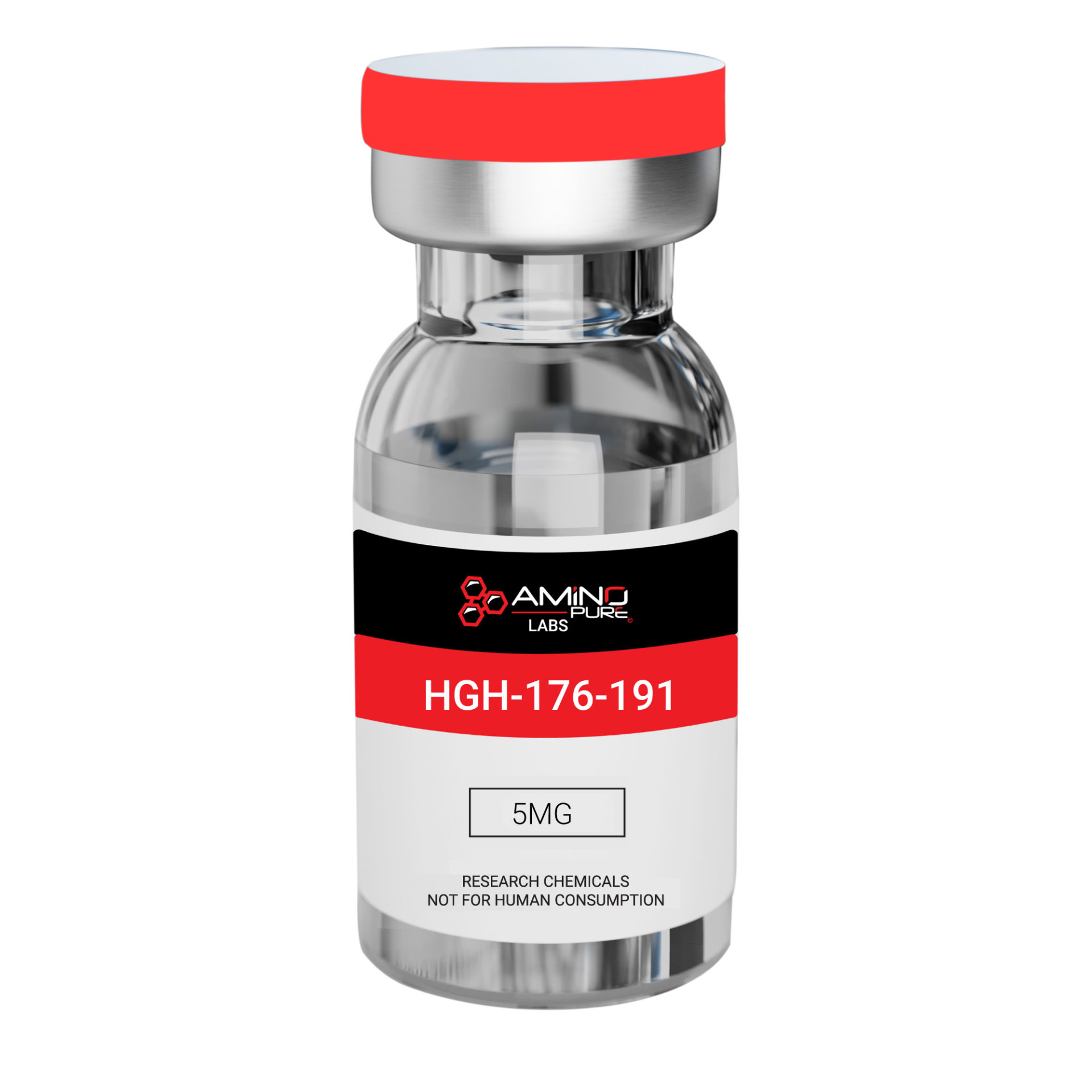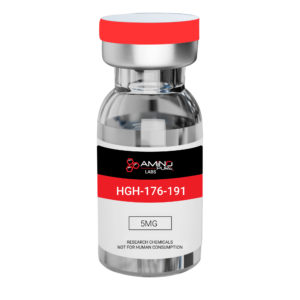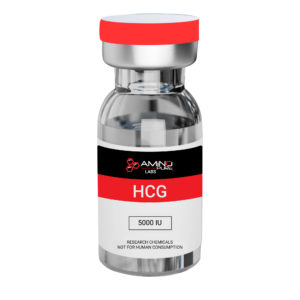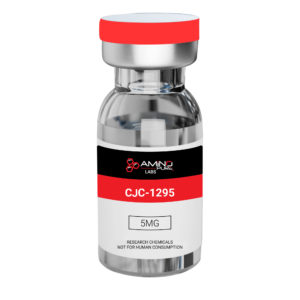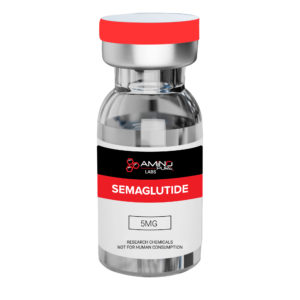Description
HGH FRAGMENT (176-191) DESCRIPTION
The HGH fragment (176-191) is a synthetic peptide that represents the short specific portion of the amino acid chain of HGH (amino acids at positions 176-191 at the C-terminus of the human growth hormone). Just this fragment of HGH is responsible for its strong fat burning properties, but does not have strong impact on insulin levels as HGH does. Clinical trials confirms, in both humans also animals, HGH Fragment leads to lipolysis (breakdown of fat) and inhibits lipogenesis, wherein, the HGH fragment can be up to 12.5 times more potent than HGH for fat burning. HGH fragment 176-191 mimics the way natural human growth hormone regulates the breaking down of fat, but without the unwanted side effects on blood sugar, insulin level or cell proliferation.
CLINICAL TRIALS AND HGH FRAGMENT (176-191) RESULTS
HGH Fragment 176-191 has been researched mainly in animal models. While it preserves the fat-burning effects of HGH, it avoids some other effects of its parent protein such as increasing IGF-1 levels, negatively impacting carbohydrate metabolism, altering insulin sensitivity, or increasing long bone growth.
Scientific clinical study published in 2013 in the Journal of Endocrinology and Metabolism evaluated 6 trials of HGH Fragment 176-191 to assess the rate and significance of possible negative effects associated with HGH Fragment. Results was that administration of HGH Fragment 176-191 (when compared to placebo) did not cause any changes in glucose levels, glucose tolerance, insulin sensitivity or IGF-1 levels. This suggests that HGH fragment 176-191 offers several benefits of hGH but without the associated its possible negative side effects.
HGH-FRAGMENT INHIBITS LIPOGENESIS
Similar to unmodified HGH, this truncated form of human growth hormone helps with fat metabolism and inhibits the creation of fatty acids and other lipids in the body. But, HGH Fragment directly affects the adipose tissue, specifically the adipose fat cells, and increases lipolytic action. Thanks to this, fat metabolism runs faster and stronger than in the case of HGH, and HGH Fragment 176-191 seems to be more suitable option for fat burning and obesity treatment than regular human growth hormone.
SCIENTIFICALLY INVESTIGATED POSSIBLE BENEFITS OF HGH FRAGMENT
-
- Strong fat burning properties without any side effects
- Stimulates lipolysis and inhibits lipogenesis
- Does not cause changes in glucose levels & tolerance, insulin sensitivity or IGF-1 levels
- HGH-Fragment can be up to 12.5 fold more potent than HGH for fat burning
- Is more suitable option for fat burning and obesity treatment than regular hGH
- Increases energy levels
HGH FRAGMENT POSSIBLE SIDE-EFFECTS
-
- Possible irritation of the skin at the injection site
- Injected areas may be slightly painful
- Rarely headaches
HGH FRAGMENT 176-191 PEPTIDE FAQ
What is HGH Fragment?
HGH Fragment 176-191 is a modified form of amino acids 176-191 of the Human growth hormone.
Does HGH Fragment have stronger effects on fat burning than regular HGH?
YES: HGH-Fragment can be up to 12.5 fold more potent than HGH for fat burning
Does HGH Fragment affect IGF-1 levels?
NO: The HGH fragment does not affect IGF-1 levels.
Does HGH Fragment cause low blood sugar?
NO: It does not cause low blood sugar.
HGH FRAGMENT (176-191) DOSAGE
In the scientific studies and clinical trials performed, the optimal dose of HGH Fragment (176-191) is often reported as 250-300 mcg three times daily.
OVERVIEW
Peptide HGH Fragment is short part of HGH amino acid chain, that effectively stimulates lipolysis (the breakdown or destruction of fat) and inhibits lipogenesis (the transformation of non-fat food materials into body fat). Clinical studies indicate that HGH fragment 176-191 mimics the way natural human growth hormone regulates the breaking down of fat, but without the unwanted side effects on blood sugar, insuline level and cell proliferation. HGH fragment has been found to be 12.5 times more potent than unmodified HGH, and seems to be more suitable option for fat loss than regular human growth hormone.

